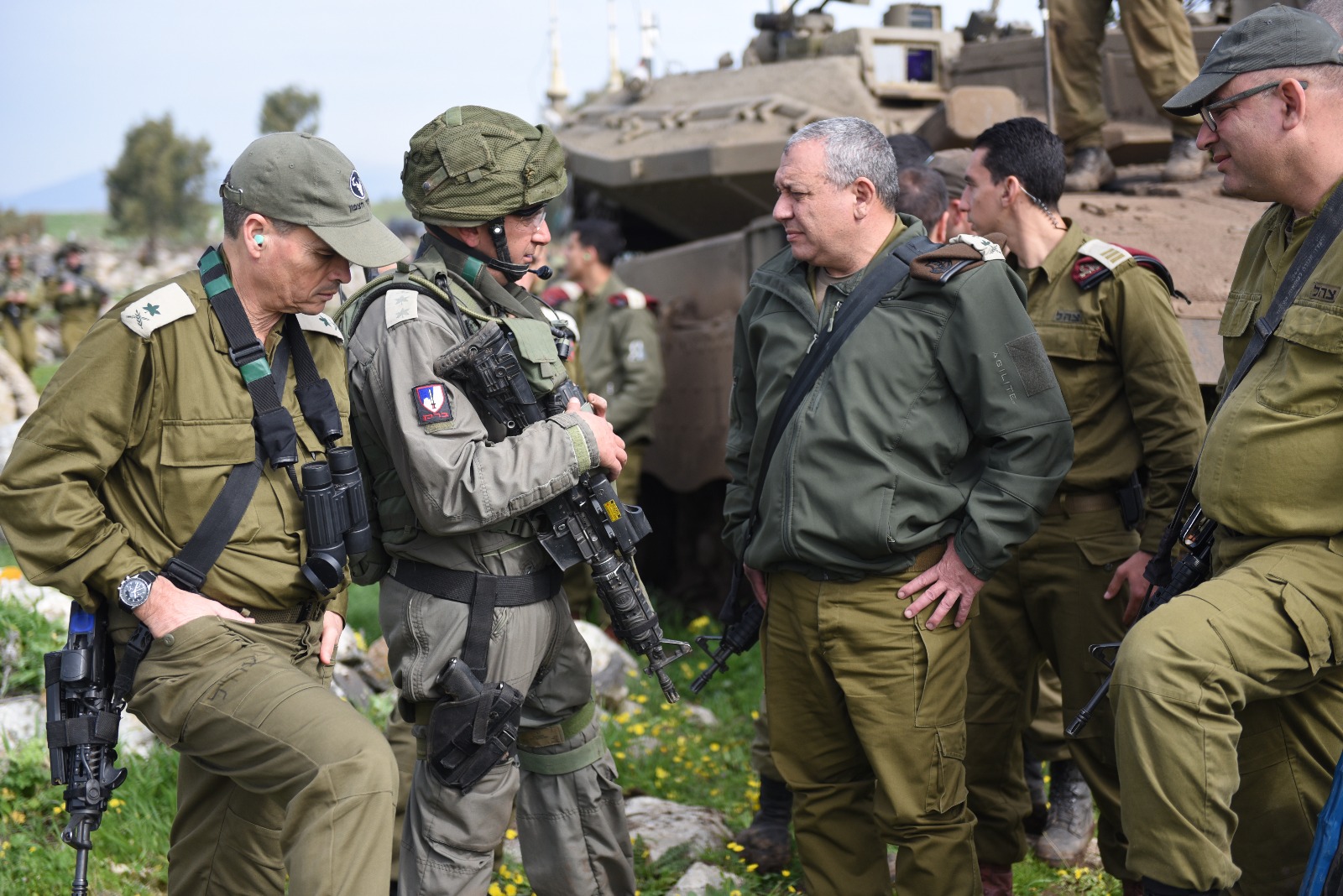The IDF Galilee Division on Thursday completed a series of large-scale exercises designed to prepare the military for a potential rapidly unfolding war in Lebanon, the army said amid rising tensions in recent weeks along Israel’s northern frontier.
“Conscripted soldiers, along with reservists, took part in the exercise. They practiced a rapid call-up of reservists, as well as operational capabilities and readiness to fight in Lebanese terrain,” the Israel Defense Forces said.
In addition, the army’s 188th Armored Brigade conducted its own, separate exercise in northern Israel, along with troops from combat engineering, infantry, and artillery.
The drills came amid heightened tensions in the country’s north, following aerial clashes between the Israeli air force and the Syrian military earlier this month, and amid an ongoing diplomatic dispute between Israel and Lebanon over a portion of the Mediterranean Sea, which is believed to contain a natural gas reserve, that each claims as its own.
“The brigade exercises were held as part of the enhanced 2018 training program. Their purpose is to prepare combat soldiers and their commanders for any scenario, and to enhance their readiness and capabilities for real-time threats,” the army said.
Col. Manny Liberty, the head of the 769th Territorial Brigade, which is responsible for defending the eastern portion of the Lebanese border, said the exercise improved both the offensive and defensive capabilities of his unit.
“We will continue to train and prepare to ensure the security of the residents of this region,” Liberty said.
During the tank brigade’s exercise, the troops simulated “a variety of scenarios, and were required to practice logistic and operational efficiency over a prolonged period of fighting,” the army said.
The commander of the 188th Brigade, Col. Gal Shochami, stressed the importance of the exercise as conflict could break out at any time.
“We must remember the meaning of the command, ‘War tomorrow,’ which tells us that any training situation may be the last before the real test of our abilities: the battlefield,” Shochami said.
“The 188th Brigade will be ready to fight on the battlefield, whenever, and wherever it will be required,” he said.
IDF Chief of Staff Lt. Gen. Gadi Eisenkot and the head of the Northern Command, Maj. Gen. Yoel Strick, visited the exercises in northern Israel, speaking with the commanders of the various participating units and assessing the brigade’s abilities, the army said.
The military faced deep criticism following the 2006 Second Lebanon War against the Hezbollah terrorist group over its failure to properly train soldiers for the types of fighting they encountered in the conflict, having instead focused on preparing troops for West Bank counter-terrorism operations. In the interim 12 years, the army sought to address that issue, building special facilities that mimic southern Lebanese terrain and investing considerably more resources in training exercises for reservists.
In September, the military conducted its largest exercise in decades, aimed specifically at simulating a war with Hezbollah in southern Lebanon.
This has all been to prepare for another bout with the terrorist group and its supporters — Iran and Syria — which many defense officials and analysts see as only a matter of time.
The prospects of such a clash between Israel and the Iranian-led axis of Tehran, Damascus and the Beirut-based Hezbollah were raised following a significant aerial exchange earlier this month.
Earlier this month, an Iranian drone entered Israeli airspace near the Jordanian border before it was shot down by an Israeli attack helicopter. In response to the drone incursion, Israeli jets attacked the mobile command center from which it was operated, the army said at the time.
During the reprisal raid, one of the eight Israeli F-16 fighter jets that took part in the operation was hit by a Syrian anti-aircraft fire and crashed. The Israeli Air Force then conducted a second round of airstrikes, destroying between a third and half of Syria’s air defenses, according to IDF spokesperson Lt. Col. Jonathan Conricus.
In the aftermath of the exchange, officials from Iran, Syria, and Hezbollah boasted that the downing of the F-16 marked the end of Israel’s ability to freely operate in the region. Meanwhile, Israeli officials said the fact that the air force destroyed a sizable portion of Syria’s air defenses after the F-16 was shot down proved that the Jewish state maintained its aerial superiority in the Middle East.
Originally posted at The Times of Israel.





